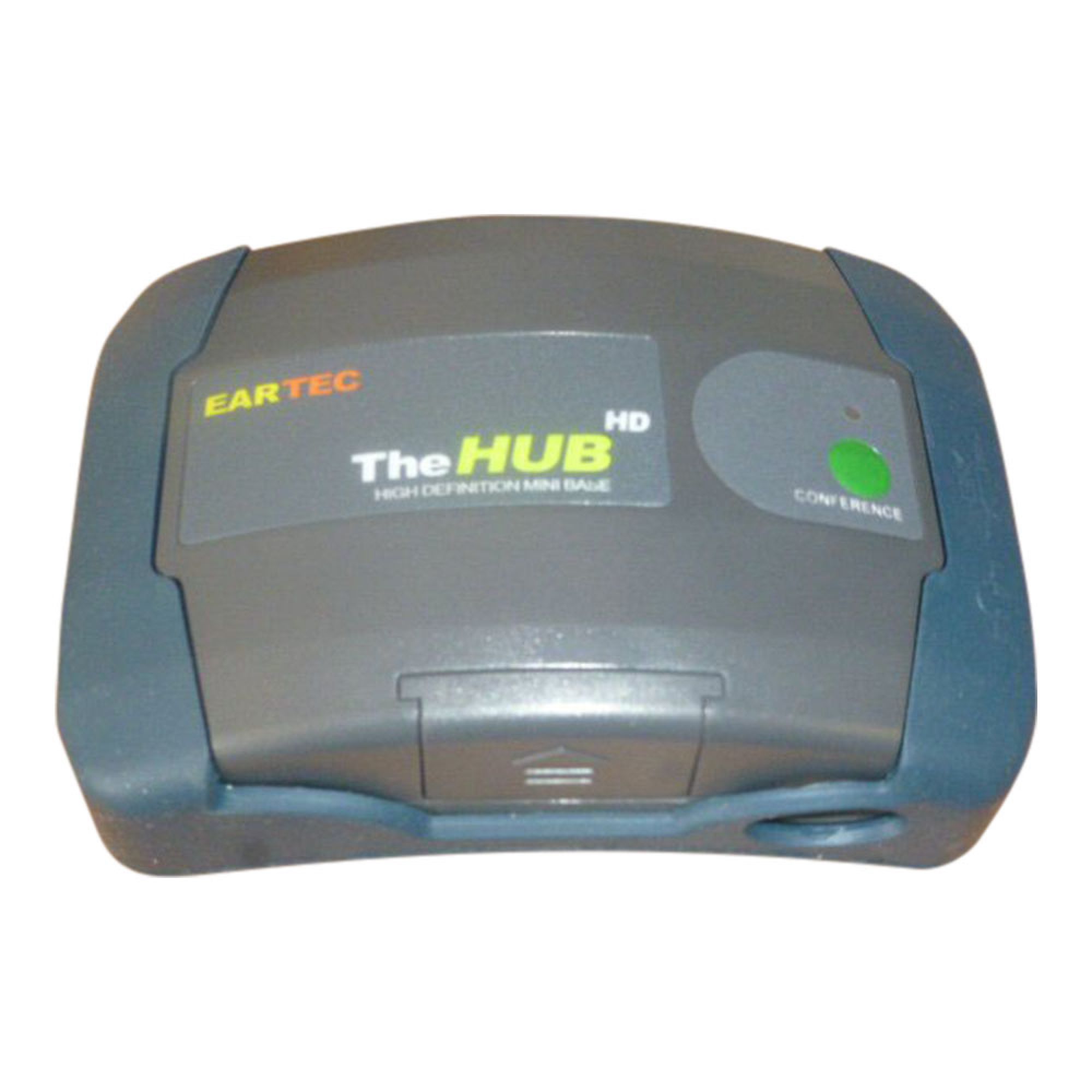Hdforhub - Making Your Digital Life Simply Better
Have you ever felt like your digital tools, while powerful, sometimes feel a bit like they're speaking a different language? It's like you know there's so much potential in how you interact with your computer and the internet, yet getting everything to click just right can feel like a puzzle. This is where a fresh way of thinking, let's call it the hdforhub approach, comes into play. It's about looking at how we manage information and use smart tools in a way that just makes more sense for everyday people, not just tech wizards.
We spend so much time online, whether it's looking things up, sending messages, or getting work done. And, you know, sometimes the little things, like how your search engine behaves or how you ask a question of a big pile of data, can make a real difference in how smoothly your day goes. The hdforhub idea is all about bringing these seemingly small actions together, helping you feel more in control and less overwhelmed by the sheer amount of digital stuff out there. It’s about making things clearer, more direct, and ultimately, more helpful for you.
From setting up your web browser just the way you like it, to figuring out how to ask very specific questions of your information, and even exploring clever new computer programs that help you write code, the hdforhub way of looking at things helps you see the bigger picture. It connects these different pieces, showing how each one plays a part in making your digital experiences a little easier and, frankly, more enjoyable. So, let's take a closer look at how we can make our digital helpers work better for us, with a touch of the hdforhub mindset.
- Vince Papale The Inspiring Journey Of An Underdog
- Unveiling The Charismatic Ryan Paevey A Journey Through Fame
- Exploring The Life And Legacy Of Josephine Rogers
- Breckie Hill Fapello The Rise Of A Social Media Sensation
- Unveiling The Mystery Who Is Spencer James Real Dad In All American
Table of Contents
- Making Your Computer Work Just For You
- How Do We Ask Our Data What We Need to Know with hdforhub?
- Making Sense of What Your Searches Tell You
- When Is It Okay to "Query" Someone, in a Human Way, About hdforhub?
- Arranging Your Digital Piles of Information
- What Kind of Clever Helpers Are Out There for Coding with hdforhub?
- Getting a Closer Look at How These Coding Tools Are Put Together
- Why Might One of These Tools Be a Really Good Fit for Your Work with hdforhub?
Making Your Computer Work Just For You
It's pretty common to use your computer every day, yet sometimes we just accept the way things are set up without really thinking about how we could make them work better for us. For instance, your web browser, like Chrome, is something you likely open many times a day. Making sure it’s set up to do what you want, right from the start, can save you little bits of time and frustration over and over again. It’s a small tweak, but it makes a big difference in how smoothly your online experience feels. You know, it’s about making your digital space truly your own.
How Setting Up Your Browser Helps with hdforhub
When you open Chrome, for example, you can tell it exactly what search engine you prefer to use. This means that every time you type something into the address bar, it goes straight to your favorite place to look things up. To do this, you just head over to the settings menu, which is usually found by clicking on the three dots or lines in the top right corner. From there, you'll see an option for "settings," and then you can pick your preferred search engine. It’s pretty straightforward, actually. This little adjustment helps you keep your focus and makes your online searches feel a bit more natural, which is a key part of the hdforhub idea – making technology fit you, rather than the other way around.
How Do We Ask Our Data What We Need to Know with hdforhub?
Have you ever looked at a big spreadsheet full of numbers and words and wished you could just ask it a question and get a simple answer? Like, "What's the average of this column, grouped by that other column?" Well, there are clever ways to do just that. When you're working with connected sheets, for instance, you can use special commands to pull out exactly the information you're interested in. It's like having a very polite assistant who can quickly sort through everything and give you a clear summary. This is really useful for anyone who deals with lots of information and wants to get specific insights without too much fuss.
- Exploring The Lives Of Bill Belichicks Kids Their Ages And Beyond
- Exploring The Life And Age Of Pete Roses Wife
- Cillian Murphy Unraveling His Relationships And Personal Life
- Welcoming The Joy Dave Grohls New Daughter
- Unraveling The Connection Between Bre Tiesi And Johnny Manziel
Getting Answers from Your Information with hdforhub
To create these kinds of questions in your connected sheets, you can actually use queries that you've saved from other big data projects, like those in BigQuery. It means you don't have to start from scratch every time you want to ask something new. You can learn more about how these saved queries work, which is pretty handy. Also, there's a specific function, often called "QUERY," that lets you run these kinds of questions on your data using a special language. For example, you might ask it to find the average of one set of numbers, arranged by another set. You just click on "data" in the menu at the top of your sheet, and you can start exploring these options. It makes working with your information much more flexible, which is definitely a plus for anyone adopting an hdforhub mindset.
Making Sense of What Your Searches Tell You
When you search for something, whether it's in your email or on the wider internet, you often get a lot of results back. Sometimes, it's more than you really need, and trying to find the truly important bits can feel a bit like looking for a needle in a haystack. But there are smart ways to make those results more manageable. Think about your email, for instance. You can search for something specific, and then, based on what you find, you can set up a rule to automatically handle similar messages in the future. This helps keep your inbox tidy and makes sure you see what matters most to you. It's about being clever with how you sort through all the digital noise.
Tidying up your search findings for hdforhub
When you're sifting through search results, especially if you're trying to filter things, it's a good idea to avoid using quotation marks in certain situations, and maybe consider filtering by all the different ways a query might show up. This can help you catch everything you're looking for, or everything you want to avoid, without missing anything important. For example, if you want to see everything except certain values, you can set up your filter to do just that. It's a way to refine your search process, making it more precise and less prone to leaving out important information. This kind of thoughtful filtering is a very practical part of managing your digital life, fitting well with the hdforhub approach of making things clear and easy to handle.
When Is It Okay to "Query" Someone, in a Human Way, About hdforhub?
Sometimes, words that are used in very technical computer settings also have a place in everyday talk. The word "query" is a good example. In the world of computers, it means to ask a database for information. But in regular conversation, it means to ask a question, or to express doubt about something. So, it's worth thinking about when it's appropriate to use this word when you're just talking to people. For instance, you might say, "I will query them about all the necessary details," meaning you'll ask them. Or, "I will call them and query the details," which also means you'll ask for more information. It's about making sure your language is clear and understood by everyone, whether you're talking about computers or just chatting with a friend.
Speaking Clearly About Details with hdforhub
It's pretty interesting how words can have different meanings depending on the setting, isn't it? When we talk about "query" in a human context, it usually means we're seeking clarification or more information. For instance, if you have a question about a certain matter, you might say you have a question "on this" or "in this" matter. The important thing is to be understood. So, if you're trying to get more specifics from someone, saying you'll "query" them is a perfectly fine way to put it, as long as the person you're talking to understands what you mean. This focus on clear communication, whether with people or with data, is quite central to the hdforhub way of doing things.
Arranging Your Digital Piles of Information
Think about how you keep your physical belongings organized. You might have different boxes or shelves for different kinds of items. The same idea applies to your digital information. When you're dealing with lots of data, like tables of numbers or lists of things, it's really helpful to have a system for keeping it all in order. This is where "datasets" come in. They're like special containers that help you group related information together. Not only do they keep things neat, but they also help you control who can see or use that information. This kind of organization is super important when you're working with large amounts of data, making sure everything is where it should be and that only the right people can get to it.
Keeping Your Data Neat and Tidy for hdforhub
When you're working with data, each column of information typically holds a specific kind of thing. For example, a column might only contain true or false statements, or just numbers (which can include dates and times). Understanding these basic types helps you store and work with your information correctly. Using datasets, you can then organize these tables and also set up "jobs," which are like automated tasks that work with your data. This makes it much easier to manage your information, process it, and make sure it's ready for whatever you need to do with it next. It's a fundamental part of keeping your digital workspace efficient and well-structured, a key principle of the hdforhub approach.
What Kind of Clever Helpers Are Out There for Coding with hdforhub?
For folks who write computer programs, there are some pretty amazing tools appearing that can actually help them write code. These are often called AI coding assistants or code agents. They're like having a very smart helper right there in your computer's terminal, ready to suggest lines of code or even write whole sections for you. Two well-known ones are Gemini CLI and Codex CLI. They each have their own special ways of doing things, but they both aim to make the process of writing code faster and a bit easier. It's honestly quite fascinating how these programs can understand what you're trying to build and then offer helpful suggestions.
Comparing Helpful Coding Friends for hdforhub
We can take a closer look at these command-line tools, like Gemini CLI and Codex CLI, to see which one might be the best fit for someone who writes computer programs. Each of these code agents, including others like Claude Code, has its own particular strengths when it comes to what it can do. They all offer similar abilities in helping to create code, but the way they go about it, or the specific features they highlight, can be different. It's a bit like choosing between different kinds of handy tools for a project; you pick the one that feels most comfortable and gets the job done best for your particular needs. Understanding these differences is pretty important for anyone looking to make their coding life simpler, a true hdforhub way of thinking.
Getting a Closer Look at How These Coding Tools Are Put Together
When we talk about these clever coding helpers, it's interesting to know a little bit about how they are built. Take Gemini CLI, for instance. It's made using something called TypeScript and Node.js. This means that both the part you interact with directly (the "frontend" package) and the part that does all the heavy lifting behind the scenes (the "backend" package) are written in TypeScript. This choice of building materials makes it quite approachable for many developers, as TypeScript is a widely used language. It’s like knowing that a house is built with strong, common materials, which makes it easier to understand and work with if you ever need to.
The Inner Workings of a Modern Coding Helper for hdforhub
The fact that Gemini CLI is built with TypeScript makes it quite easy for many people who write computer programs to get started with it. It means the way it's put together is somewhat familiar to them. This kind of accessibility is a big plus because it lowers the barrier for folks to pick up and use the tool effectively. Understanding a little bit about what's under the hood can really help you appreciate why certain tools perform the way they do and why they might be a good fit for different kinds of work. It’s all part of making the most of your digital helpers, a core tenet of the hdforhub perspective.
Why Might One of These Tools Be a Really Good Fit for Your Work with hdforhub?
For those who spend their days writing computer programs, especially on really big collections of code, finding the right helper can make a huge difference. You want something that's not just smart but also offers good value for what you get. Gemini CLI, for example, really stands out in this regard. One of its most impressive features is its ability to remember and understand a lot of information at once, sometimes up to a million "tokens," which are like tiny pieces of text. This means it can keep a very large amount of your code and instructions in its "mind" while it's helping you, making its suggestions much more relevant and useful.
Finding the Right Tool for Your Big Coding Projects with hdforhub
Having a tool like Gemini CLI that can handle such a large amount of context is really helpful when you're working on complex coding projects. It means the tool can consider more of your existing code and your overall goals when it's giving you suggestions, which often leads to better, more accurate results. This makes it a really strong choice for developers who are dealing with vast amounts of code or who are looking for a powerful assistant that offers a lot for what you pay. With the Gemini CLI, you can do many things, like generating code or getting help with specific parts of your project. It's about finding the right partner for your coding adventures, truly embodying the spirit of hdforhub.
- Noodle Recall 2024 What You Need To Know
- Unveiling The Secrets Behind Laura Rutledges Salary
- Unraveling The Mystery Whos Spencer James Dad
- Exploring The Life And Career Of John Nettles Today
- Unveiling The Legacy Of The American Singer Prince

Home - Hdhube4u |hdhub4u | hdhub4u in | hd hub4u | hdhub4u 2024

Home - Hdhube4u |hdhub4u | hdhub4u in | hd hub4u | hdhub4u 2024

The Future Of Hdforhub: What To Expect - Truth or Fiction